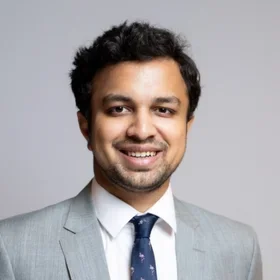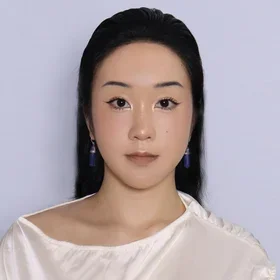Elizabeth Ng (right), a student from Hong Kong, recently earned an M.S. in the Bioethics program at Columbia University. In 2019, she graduated from the German Swiss International School in Hong Kong and soon after was admitted to the University of Hong Kong (HKU) Bachelor of Medicine and Surgery program. In search of opportunities to enrich her education during a gap year, Elizabeth discovered HKU’s partnership with Columbia Bioethics.
Elizabeth has also participated in shadowing experiences at Queen Mary Hospital in Hong Kong. At the 2022 Asia Pacific Bioethics Education Network Conference, she discussed the differences between her education as a medical student and her education as a bioethics student. Here’s what she had to say about her Columbia experience.
How did you first hear about the Columbia Bioethics program?
I first heard of the program when I was planning ahead for my gap year. I knew I wanted to study bioethics, and luckily for me, HKU had just initiated a partnership with the Columbia M.S. in Bioethics program.
Tell us about your experience in the program—what did you find most valuable? And how are you applying what you learned?
I found the most value in discussions during the classes—the chance to hear other people’s perspectives. As a medical student, I had prior experience with clinical ethics. However, [in medical school] classes were limited in scope—at times I felt like I was being taught about what was right and what was wrong, as opposed to learning how to come to these conclusions myself. At Columbia, I’ve come to believe that it’s more important to understand why individuals may have a different opinion, as opposed to being taught what is the most moral act. This perspective can help clinicians as they grapple with complex bioethical issues.
Who was your favorite bioethics professor or class, and why?
I enjoyed all my classes and my professors, but I found Race and Bioethics, taught by Harriet Washington, to be my favorite. It’s easy to talk about justice within the four pillars of ethics, but it’s more difficult to understand the repetitive patterns of racism that prevent justice within health care. Through this class, I have been able to recognize my own implicit biases and believe it would be useful to my career as a doctor. This was not something I had much considered previously.
What did you most enjoy about living and learning in New York City?
I think what was so enjoyable about living and learning in the city is being able to meet such a diverse range of personalities with different backgrounds in life. This generates a creative friction that aids my learning beyond the classroom. It was refreshing to hear from my peers and friends about their various life experiences and contrast them with my own. It is both humbling and inspiring. Most importantly, there was always something for me to do in the city. I made lifelong friendships and invaluable memories in my year at Columbia.
Which area of medicine are you interested in?
In preparation for my clinical years at HKU, I enrolled in a shadowing experience at the obstetrics and gynecology department at Queen Mary Hospital, the teaching hospital at the University of Hong Kong. I was also able to witness several live births through cesarean section and natural birth. I most enjoyed the equal portions of surgery and medicine. The extensive involvement with other disciplines such as sexual health, psychology, pathology, and neonatology was also very fascinating. Through this experience, I am now interested in pursuing this as a specialty.
What advice would you give current or prospective students?
I think bioethics would absolutely enrich your career as a medical practitioner—or as anything else, really. I’m very thankful to have studied these broad topics more in depth, which I would not have been able to do otherwise. My advice is to participate in class discussions; that’s how you would get the most out of your bioethics experience.


